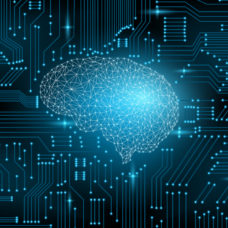Google’s “The Selfish Ledger” video offers a glimpse of one way big data can improve our individual lives and those of generations to come.
You could say that Google’s mission is to optimize the web. Now, Google’s mission is to optimize your life. But, the goal doesn’t stop there. “The Selfish Ledger” video (below) outlines Google’s plan to optimize the lives of future generations and society as a whole.
A couple of years ago, Google reportedly made the video to showcase the potential that data collection has to better our lives. This video touches on one of the main themes of Industry 4.0: how to effectively organize generations of data into actionable insights.
Originally, the video was for internal Google purposes only. However, The Verge recently leaked it.
Each of us constantly consumes data. In turn, we leave behind a trail of data about our “actions, decisions, preferences, movement, and relationships”. In short, we leave behind a record or ledger that paints a portrait of who we are.
Beyond improving our own daily experiences, Google’s thought experiment also argues that our individual ledgers can contribute to a species-level understanding of who we are.
Ideally, this truly global perspective could offer profound insight into the societal challenges we face as a species. It could also help us solve these, the video argues.
Optimizing Generational Knowledge
The short film borrows from evolutionary theorists like Jean-Baptise Lamarck and Richard Dawkins.
The video raises some serious questions like what if the so-called “ledger” could be given its own volition and purpose? Or, what if we instead think of ourselves as just “custodians” of our private information rather than it’s owner?
At the end of the day, Google’s approach is bio-mimicry. After all, DNA is a ledger.
It is both a self-contained data storage device and power source that spans generation. Its job is to help pass useful information along to future generations. With “The Selfish Ledger”, Google’s looking to optimize this biological process, too.
Read More: 5 Ways to Improve Your Small Business Using Big Data
AI’s Role in “The Selfish Ledger”
The near nine-minute film also shows how crucial artificial intelligence‘s role in this data-driven future would be.
One of the most prevalent challenges in machine learning and to creating a viable general AI is access to sufficient data sets. This video proposes using our personal ledgers (read “data”) to help solve this issue. To this end, the video explains that “…the ledger is missing a key data source, which it requires to better understand it’s user.”
“Whilst the notion of a global good is problematic, targets would likely focus on health or environmental impact to reflect Google’s values as an organization,” explains the video’s narrator while showing a person hailing Uber but being reminded by an AI to take carpool instead.
Ultimately, the goal of the ledgers is to create the human behavior model that could span generations. Google’s approach would be able to “plug gaps in its knowledge and refine its model of human behavior.”
This, for instance, would allow new ledgers, which corresponds to “children,” to exploit the benefits of available historical data. As such, this would let Google study problems like poverty and healthcare from an entire population’s perspective.
The Benefits and the Cost
Google believes that this concept would help steer the world and humanity towards a better and brighter future. Or, at least a better understanding of ourselves as a species.
In a statement from a Google to the Verge, the company claimed that it’s just a thought-experiment aimed at provoking discussion and debate. For now.
“We understand if this is disturbing — it is designed to be. This is a thought-experiment by the Design team from years ago that uses a technique known as ‘speculative design’ to explore uncomfortable ideas and concepts in order to provoke discussion and debate. It’s not related to any current or future products.”
At the moment, this thought experiment does not openly consider the potential ethical implications of its innovation.



















Comments (0)
Most Recent